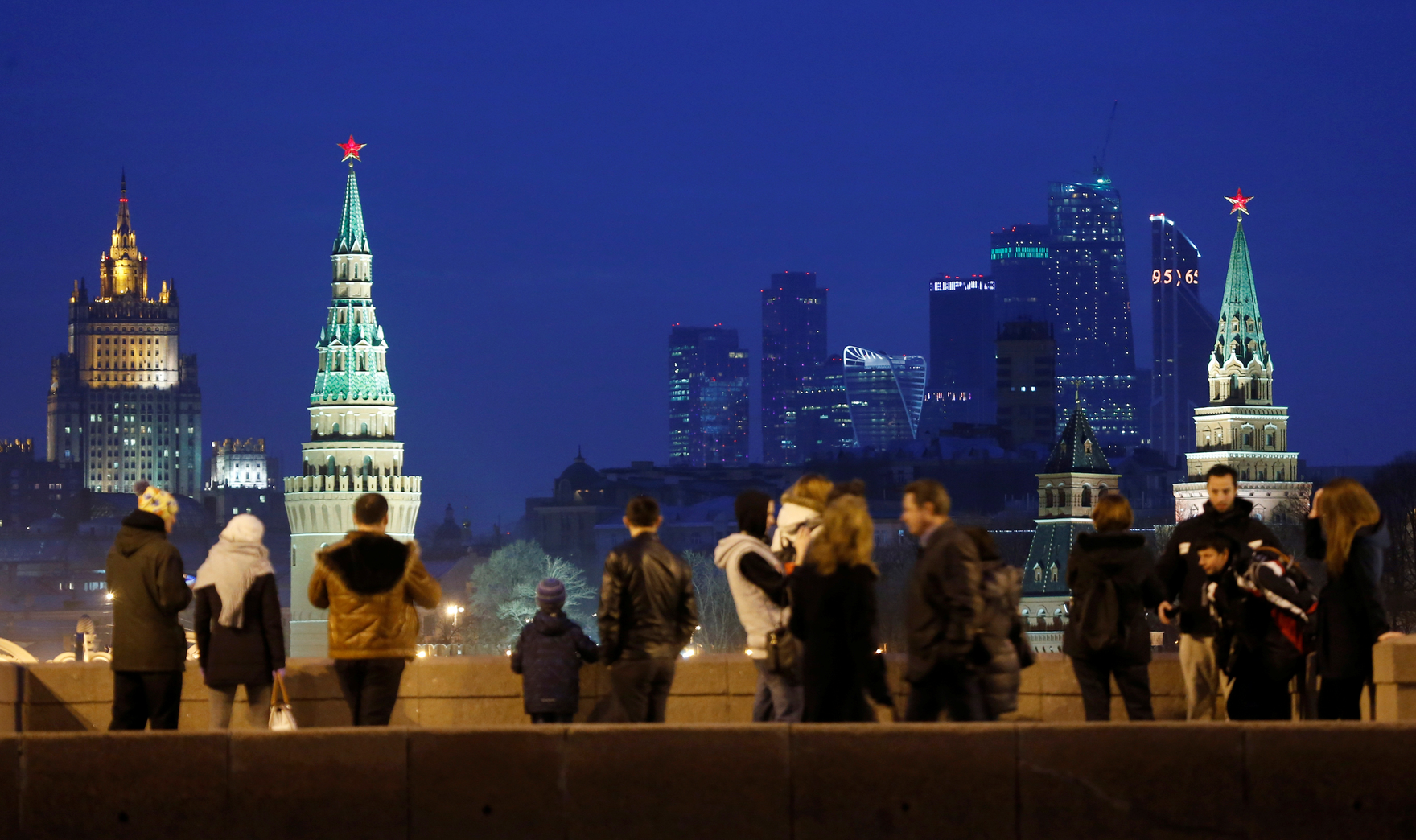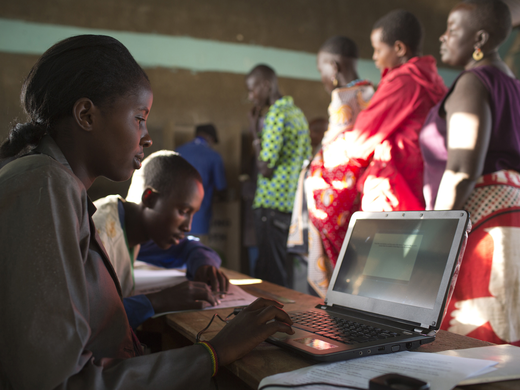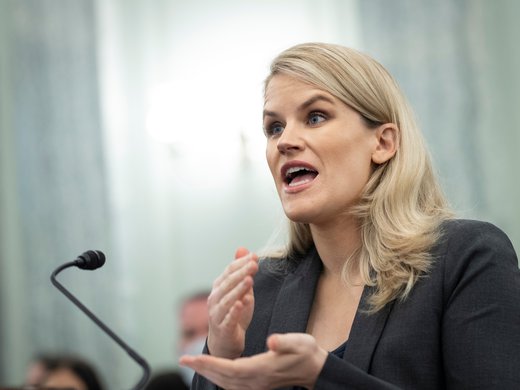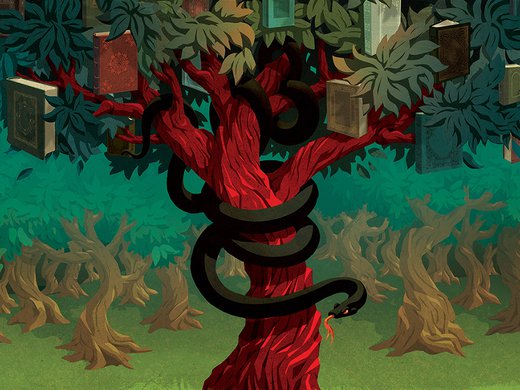Africa may soon factor into the global geopolitical agenda in a much larger way. The continent’s population of nearly 1.4 billion people, with an average age of 19, is on pace to grow to 2.5 billion by 2050. Large deposits of key minerals vital for green technology and a landmark new continental free trade agreement have potential to produce massive market and investment opportunities within a decade. But inhibitors to that trajectory remain.
Climate change is provoking major environmental and security issues amid economic shocks from the COVID-19 pandemic, which has negatively impacted decades’ worth of poverty alleviation. The growing interest and influence of illiberal foreign regimes in African countries where democratic values are already poorly upheld by the state also pose a growing challenge.
Russia’s Growing Footprint
To circumvent sanctions imposed by EU member nations, the United States, Canada and others reacting to Russia’s 2014 annexation of Crimea, interlinked elements of the Russian state and individuals tied to the government and Russian corporations have pivoted to Africa. Diplomatic, economic and security deals have since been struck in dozens of countries — including, but not limited to, Angola, Burkina Faso, Guinea, Nigeria, Mali and Mozambique.
These deals can involve a strategic combination of mining and infrastructure investments, political cooperation, media and press partnerships, counter-insurgency training, personal protection, campaign and policy advice, weapons transfers, humanitarian support and cultural exchange. In each case the deals are tailored and packaged to fit the various needs and desires of local elites and top-down interests. Although Russia is still a relatively small player in Africa economically and militarily, its engagement is already generating outsized returns.
In December 2019, African countries contributed 30 of the 79 votes supporting a successful Russia-backed resolution at the United Nations calling for a new global anti-cybercrime treaty that rights groups argue could place a chilling effect on free speech and access to information. The majority of the 30 countries — in particular, the Central African Republic (CAR), Libya, Madagascar, Sudan, Zimbabwe and South Africa — have also been mentioned in leaked Kremlin documents detailing how their governments were making efforts to maintain the highest levels of national cooperation with Russian interests.
Two months earlier, Facebook took down three Russian-linked networks celebrating ruling parties in eight African countries, again involving CAR, Sudan, Libya and Madagascar. The networks’ 73 fake pages attracted a significant audience by producing some 48,000 pieces of carefully thought-out content over an 18-month span on Facebook and Instagram, amassing likes from 1.7 million users and generating 9.7 million total interactions. All of the pages could be traced back to companies tied to Russian financier Yevgeny Prigozhin, a member of President Vladimir Putin’s inner circle who’d previously bankrolled the infamous Internet Research Agency, a troll farm in St. Petersburg at the forefront of Russian efforts to undermine US democracy.
Prigozhin is now reportedly overseeing Russia’s strategic push in Africa. This includes in CAR, where the Wagner Group — a private military contractor allegedly financed by Prigozhin and whose mercenaries have been active in conflicts in Libya, Syria and eastern Ukraine — serves as an elite security force for President Faustin-Archange Touadéra. UN investigators earlier this year accused members of the Wagner Group of being complicit in egregious human rights abuses in the country. Media reports have claimed Wagner mercenaries are also present in Angola, the Democratic Republic of the Congo (DRC), Guinea, Guinea-Bissau, Madagascar, Mozambique, Sudan and Zimbabwe.
Wagner mercenaries may soon be deployed to Mali, where recent military coups are proving beneficial to Russia’s geopolitical ambitions. Former colonial ruler France, which had tight ties with former president Ibrahim Boubacar Keïta until he was deposed in August 2020, has seen its political clout in Mali eroded. Meanwhile, Russia has formed amicable connections with Mali’s junta regime, which took over again in May 2021 after stripping power from the transitional civilian administration formed after Keïta’s dismissal.
Beyond the possibility of the Wagner Group being hired to operate in Mali, there is evidence that Russia — which gifted Mali’s military with arms and ammunition alongside the sale of four Mi-171 helicopters in late September — is working to push disinformation about France’s counterterrorism operations in the country, framing them as a front for the mining of the Sahel’s uranium riches and as neocolonialism disguised as counterterrorism. This coordinated propaganda resonates with local negative sentiments about the French presence in Mali, as well as in neighbouring Senegal. Pro-Russia banners have steadily become more visible during recent anti-France protests in both countries.
The Kremlin’s effectiveness in seeding its preferred vaccine narratives among African audiences underscores its wider concerted effort to undermine and discredit Western powers by pushing or tapping into anti-Western sentiment across the continent.
Vaccine Narratives
Russian disinformation has also been deployed to skew perspectives on the efficacy of Russia’s Sputnik V vaccine, which is viewed positively in Africa despite the absence of available clinical testing data like what other vaccine makers have shared.
During the vaccine development stage of the pandemic, US analytics company Novetta developed a rumour-tracking program to monitor misinformation and disinformation around COVID-19 and vaccines on African social media and in traditional media outlets. Between August 2020, when Russia’s health ministry approved Sputnik V, and November 2020, when Pfizer disclosed its own vaccine’s efficacy, comments by Putin and Russia’s health minister received disproportionate coverage, accounting for a combined 6.4 percent of quotes in all vaccine stories published by traditional African sources. Novetta’s analysis also highlighted how nearly one-fifth of Putin’s quotes mentioned that his own daughter received the Sputnik V vaccine.
The early positive perception of Sputnik V within African media was eventually overshadowed after Pfizer, Moderna and Oxford-AstraZeneca released rigorous clinical trial data on their own vaccines. But by December 2020 a new tactic appeared: WhatsApp messages with links to fake news stories championing Russian-made vaccines were being sent from Nigerian phone numbers to users in the DRC, claiming that American-made vaccines damaged recipients’ immune systems.
The Kremlin’s effectiveness in seeding its preferred vaccine narratives among African audiences underscores its wider concerted effort to undermine and discredit Western powers by pushing or tapping into anti-Western sentiment across the continent.
Assessing the Impact
Tristan Harris, the co-founder of the San Francisco-based Center for Humane Technology, has warned that social media companies’ lack of content moderators fluent in local dialects makes it impossible to effectively police extremist content and disinformation in Africa, even if platforms wanted to. And, as Samuel Woolley has pointed out, these problems extend to all the different dimensions of disinformation — be it hate speech, voter manipulation or incitement to violence for political gain.
Now, as Russian-sponsored disinformation campaigns have integrated local actors, some African groups — which tend to copycat the anti-democratic tactics of their peers — can be seen emulating those same methods for their own purposes.
Almost 1,000 Facebook accounts and pages artificially promoting content from Sudan’s Rapid Support Forces (RSF) — a ruthless paramilitary group loyal to former president Omar al-Bashir, who was toppled by popular protest in 2019 — and positive portrayals of the RSF were taken down just prior to an October 25 coup that has suspended Sudan’s nascent transition to democracy. The RSF has extensive commercial and financial interests in Sudan, and its leader, General Mohamed Hamdan Dagalo (known as Hemeti), was deputy head of Sudan’s joint civilian-military transitional administration prior to its being dissolved and was re-appointed as deputy of a new military-controlled sovereign council formed on November 11. Before the coup, Sudan’s military was due to hand leadership of the transitional administration over to civilian representatives in November.
Analysts at the Stanford Internet Observatory, who have flagged fake networks to Facebook and helped analyze their content, detailed how Russia is developing a “franchising strategy” in Africa on Facebook, Twitter, WhatsApp and Telegram, with content creation being outsourced to local residents. The result is false and manipulated content that is linguistically correct and less overtly biased, rendering it more authentic to local audiences, and harder for platforms and users to detect.
Russian breakthroughs — plus similar successes by Turkey — indicate an international order that is becoming more splintered. African governments are showing they are keen to take advantage by entertaining more diverse options for political, financial and military partnerships.
One case in point is Ethiopia, where the federal government has been embroiled in a brutal year-long civil war against rebel forces from the northern Tigray Region. The spiralling conflict has provoked widespread atrocities by both sides, displaced over two million people and plunged nearly half a million more into famine.
Yet Prime Minister Abiy Ahmed has routinely rebuffed calls for dialogue and mediation despite the threat of significant sanctions by the European Union and the United States. These include Ethiopia being dropped from the African Growth and Opportunity Act, a trade program that offers African countries duty-free access to the United States, provided they meet certain conditions — protection of human rights being chief among them. A spokesperson for Ethiopia’s federal government said on October 3 that being suspended from the program could wipe out one million jobs in the country.
In the words of one expert, “The Ethiopian government feels that it can do without the West — that it can obtain weapons from Iran, Turkey and China, soft loans from Saudi Arabia and the United Arab Emirates, and political protection from Russia and China.”
African nations’ reduced dependency on Western hegemony and the political conditionalities that accompany it are not inherently negative. The risks of them aligning with an increasing array of illiberal regimes, however, could potentially spell the advent of information warfare in an already unstable socio-political climate, and further challenge democracy in the region.



